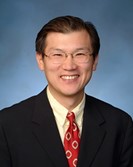Inaugural CIL-NUS Academy of International Trade
Geopolitics and Industrial Policy in Global Trade | Sungjoon Cho
Wed 12–Thu 13 April, 11am–1pm Singapore Time
This module aims to discuss the recent turbulent developments in international political economy. The unprecedented convergence of a pandemic, trade wars and the Russian invasion to Ukraine has irrevocably transformed the contours of global economic governance. Facing the new zeitgeist of decoupling and de-globalization, the state has continued to increase its intervention in the market by various means, including subsidies and economic sanctions. Will this trend undermine the traditional economic order defined by the World Trade Organization? Relatedly, will this trend be sustainable enough to materialize as a new world economic order? This module is expected to provide students with advanced insights that help them navigate the new global economic environment.
Session 1: How to (Un-) Regulate Subsidies
Why should GATT/WTO norms regulate subsidies? Why, and when, would subsidies harm international trade? Should the environmental subsidies, such as those that help fight climate change, be allowed without limits? What about new industrial subsidies recently introduced for “strategic” reasons, including decoupling and friend-shoring?
Reading Assignments:
- WTO, Subsidies and Countervailing Measures, Overview
- McKinsey & Co., The CHIPS and Science Act: Here’s What’s In It (Oct. 4, 2022).
Session 2: Trade in Geopolitics
The vanished Appellate Body defanged the WTO dispute settlement mechanism that would have disciplined the trade war in due course. How is the trade war fundamentally different from a typical violation of WTO rules? Russia’s invasion of Ukraine dealt a fresh blow to global economy that had still reeled from the post-pandemic jitter. In particular, seismic impacts of economic sanctions have plunged world economy into extraordinary uncertainties. Are we witnessing a new bipolar world order (USA/Europe v. China/Russia) in the wake of the Ukraine situation? What roles could the Middle Powers, such as ASEAN nations, play in the nascent bipolar world order?
Reading Assignments:
- Michael Hirsch, Who’s Winning the U.S.-China Trade War? No One, Foreign Policy (Sep. 21, 2022)
- Scott Lincicome, It’s the End of Globalization as We Know It (and That’s Probably Fine), Part 1, Cato Institute Commentary (Mar. 30, 2022)
 Sungjoon Cho joined the Chicago-Kent faculty in 2003. His scholarly research and teaching interests include international law, international economic law, international relations, and comparative law. In his pre-academic career, Professor Cho represented the government of the Republic of Korea in negotiations under the World Trade Organization (WTO) and the Organization for Economic Cooperation and Development (OECD). He is a member of Arbitration Panel Roster under Chapter 14 (Dispute Settlement) of the Korea–European Union Free Trade Agreement. Professor Cho has advised the Korean government under various capacities. Professor Cho served as a Co-Chair of the International Economic Law Interest Group of the American Society of International Law from 2011 to 2013. He received his LL.B. and M.P.A. from Seoul National University. He holds an S.J.D. (Doctor of Juridical Science) from Harvard Law School, where he was a Clark Byse Fellow. He is a member of the bar of the state of New York. He also holds a license to practice law in Korea.
Sungjoon Cho joined the Chicago-Kent faculty in 2003. His scholarly research and teaching interests include international law, international economic law, international relations, and comparative law. In his pre-academic career, Professor Cho represented the government of the Republic of Korea in negotiations under the World Trade Organization (WTO) and the Organization for Economic Cooperation and Development (OECD). He is a member of Arbitration Panel Roster under Chapter 14 (Dispute Settlement) of the Korea–European Union Free Trade Agreement. Professor Cho has advised the Korean government under various capacities. Professor Cho served as a Co-Chair of the International Economic Law Interest Group of the American Society of International Law from 2011 to 2013. He received his LL.B. and M.P.A. from Seoul National University. He holds an S.J.D. (Doctor of Juridical Science) from Harvard Law School, where he was a Clark Byse Fellow. He is a member of the bar of the state of New York. He also holds a license to practice law in Korea.

